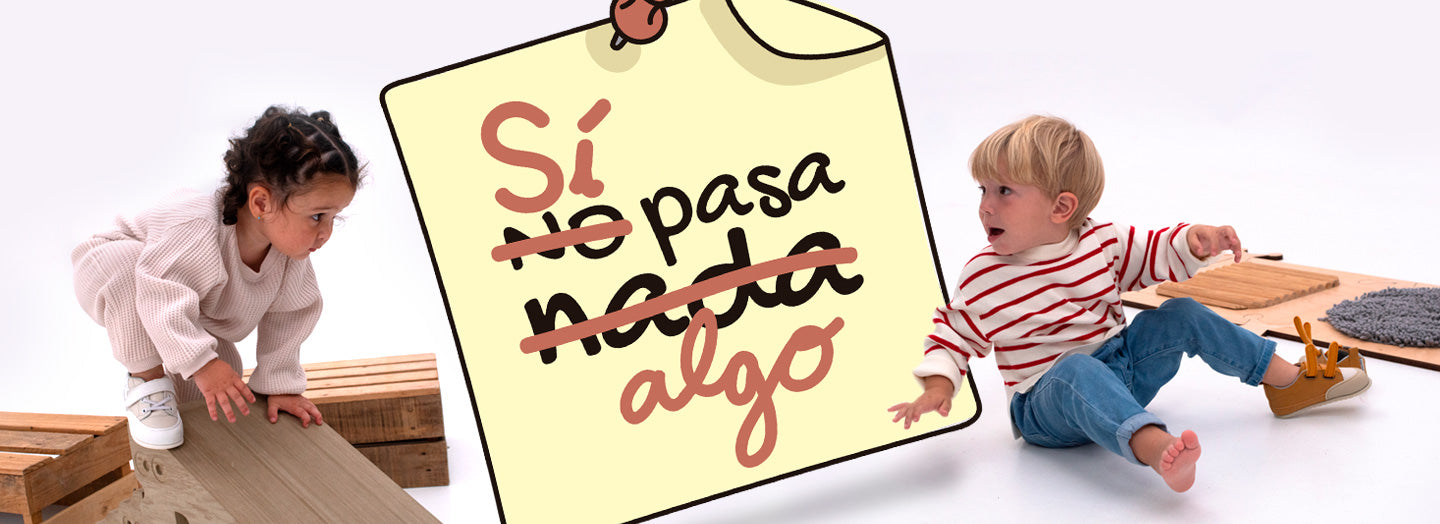When we entered the world of respectful parenting we met @tetaaporter.❤️ I always say that it was her reflections on childhood pedagogy that transformed us.
She gave us so much that we decided that our mission at Zapato Feroz was to “Spread the culture of respect for children starting with their feet” 🤲🏻🦶🦶.
Here is a beautiful text from Romina Pérez Toldi, an early years pedagogue and truly a fantastic person. 😘
🙃Time to change "you're OK"
Sometimes it seems that if we say “you're OK”, it's going to make what HAS really happened lose importance so it hurts less or is minimised in some way, but the opposite is true. When we say “you're OK” and something HAS happened (even if it seems something minor to us) we do not make it better. What that phrase usually does is cause the person who hears it to feel misunderstood and alone.

If what we want to do is to comfort our child when they fall over, bang themselves or feel upset and frustrated, we need to be proactive; listen and let them know that we understand and that we are here for them. 👐 Be sincere, use clear and kind words, anticipate and describe. Avoid any drama but don't avoid the subject or make it seem that “they're OK”. If it hurts, it hurts.
If we take them to the doctor's for treatment or a medical test that may be uncomfortable or painful, saying that it won't hurt and that they'll be OK will only cause feelings of distrust and abandonment in our children. We leave them on their own in a situation that is sometimes difficult even for adults.
The same thing happens when they fall over; they are hurt and we say “you're OK.” This is only going to make them feel misunderstood and generate feelings of anger, frustration and loneliness. "They don't understand me, they don't listen to me, I'm alone and in pain."
🦄We want to be a safe place for our children, a beacon of light, a port where they can go and rest from their adventures, that home to which they can always return, someone who will listen, give them support and help them get up again and carry on.






